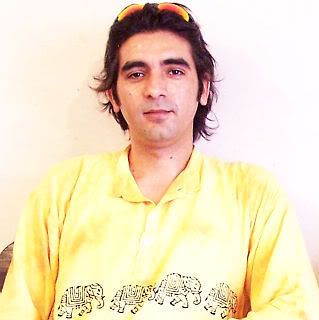माण्डुक्योपनिषद (Mandukya Upanishad) - Verse 4
स्वप्नस्थानोन्तः प्रज्ञाः सप्तान्ग एकोनविंशतिमुखः प्रविविक्तभुक्तैजसो द्वितीयः पादः ॥ 4 ॥
swapnasthaanontah pragyaah saptaanga ekonavinshatimukhah praviviktabhuktaijaso dviteeyah paadah
Translation:
swapna (स्वप्न) - Dream
sthaano (स्थानो) - Place
antah (अन्तः) - Inside/Inner/Internal
pragyaah (प्रज्ञाः) - Wisdom/Knowledge/Intelligence
sapt (सप्त) - Seven
anga (अन्ग) - Limb/Part
ekonavinsha (एकोनविंश) - ekon (एकोन) + vinsha (विंश) - Lacking one + Twenty = Nineteen
mukhah (मुखः) - Mouth/Face/Aspect
pra (प्र) - To/"used as prefix"
vivikta (विविक्त) - Solitude/Lone/Pureness/Isolation
bhuk (भुक्) - Enjoying/Entertaining - derived from bhukti (भुक्ति) - Enjoyment/Fruition
taijaso (तैजसो) - Consisting of light/Bright
dviteeyah (द्वितीयः) - Second
paadah (पादः) - Foot/Step/Aspect
Composite words:
swapnasthaano (स्वप्नस्थानो) - Composed by two words: swapna + sthaano (स्वप्न + स्थानो); means, Placed at dream/Placed as dream.
antah pragyah (अन्तः प्रज्ञाः) - Two words meant to be used together; means, Inner knowledge.
praviviktabhuk (प्रविविक्तभुक्) - Composed by three words: pra + vivikta + bhuk (प्र + विविक्त + भुक्); means, Enjoying to solitude/Experiencing to pureness.
Fragmented verse:
स्वप्न स्थानो अन्तः प्रज्ञाः सप्त अन्ग एकोनविंशति मुखः प्रविविक्त भुक् तैजसो द्वितीयः पादः
swapna sthaano antah pragyaah sapta anga ekonavinshati mukhah pravivikta bhuk taijaso dviteeyah paadah
Simple meaning:
Placed as dream, inner knowledge, with seven limbs and nineteen mouth; entertaining to solitude, bright (taijaso), is second aspect/is second step.
Reference Commentary:
http://acharya.iitm.ac.in/mirrors/vv/scripture/upanishads/mandukya.html
The second aspect is the Taijasa, or the bright state of dream. with cognition turned inwards and experiencing subtle objects through the seven limbs and nineteen mouths comprising the channels of experience.
Comments:
The second aspect of the Self, called Taijasa, is consciousness, in the state of dream, where we perceive an inner world of experience with the aid of inner faculties corresponding to the same external faculties, which enable us to experience the external world.

No comments:
Post a Comment